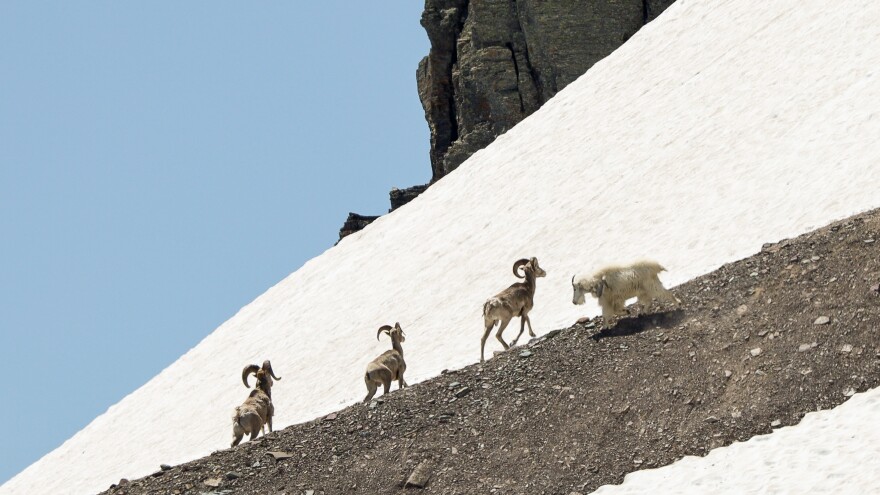News brief
Roads and other developments have destroyed mineral sources at lower elevations. And as the earth warms, it’s melted glaciers, revealing mineral licks higher up.
Now, a study finds that when mountain goats and bighorn sheep compete over these new mineral sources, it’s the goats with their long horns that usually go home happy.
Researchers from the Wildlife Conservation Society, Colorado State University and the National Park Service found that the goats prevailed in 98% of encounters at sites from Colorado to Canada.
“These animals seem to be competing for access,” said Joel Berger, the chair of wildlife conservation at CSU and senior scientist with the Wildlife Conservation Society. He is also the lead author on the joint study published in Frontiers in Ecology and Evolution.
The licks can have salt or potassium, which are key for body growth and pregnancy in these species. Some travel 15 miles to find limited resources.
When there’s a confrontation, Berger says mountain goats quickly escalate to aggression, leading the bighorn sheep to back off.

Though their fights aren’t bloody, he says the competition is pushing the sheep out. He emphasized that because this type of research is rare, they don’t know how long animals have been coming to these licks or competing over them.
He added, “I think all of us who are interested in trying to understand the consequences of climate change, we have to be prepared for unexpected ways in which resources will unfold and how this is going to affect ecosystems.”
This story was produced by the Mountain West News Bureau, a collaboration between Wyoming Public Media, Nevada Public Radio, Boise State Public Radio in Idaho, KUNR in Nevada, the O'Connor Center for the Rocky Mountain West in Montana, KUNC in Colorado, KUNM in New Mexico, with support from affiliate stations across the region. Funding for the Mountain West News Bureau is provided in part by the Corporation for Public Broadcasting.
Copyright 2022 KUNM. To see more, visit KUNM. 9(MDAxNDQ2NDAxMDEyNzU2NzM2ODA3ZGI1ZA001))



